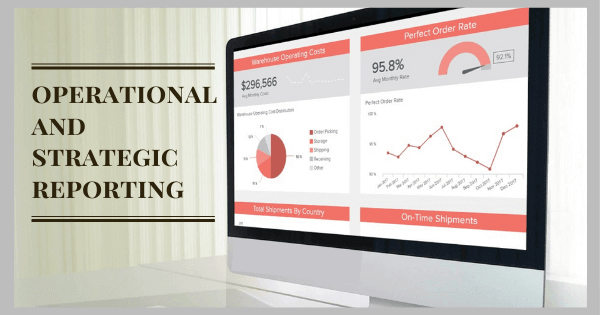In today’s fast-paced business environment, having access to accurate and timely information is crucial for making informed decisions. Operational reporting plays a vital role in providing organizations with the insights they need to manage their day-to-day operations effectively. This article explores the concept of operational reporting, its key components, benefits, challenges, best practices, case studies, and future trends.
Operational Reporting
Defining operational reporting
Operational reporting refers to the process of generating and presenting data related to the daily operations of an organization. It involves collecting data from various sources, processing it, and presenting it in a format that is easy to understand and analyze.
Enhance your reputation as a leader in the industry through digital marketing write for us and get published on our platform
Importance of operational reporting in businesses
Operational reporting provides organizations with real-time insights into their performance, allowing them to identify trends, detect anomalies, and make data-driven decisions quickly. By monitoring key metrics and KPIs, businesses can ensure that they are operating efficiently and effectively.
Key Components of Operational Reporting
Data sources
Operational reporting relies on data from various sources, including transactional systems, databases, spreadsheets, and external sources such as market data and customer feedback.
Data integration
Integrating data from disparate sources can be challenging but is essential for ensuring the accuracy and reliability of operational reports. Data integration tools and technologies help streamline this process.
Data visualization
Effective data visualization is critical for conveying complex information in a clear and concise manner. Graphs, charts, and dashboards make it easier for users to interpret data and identify trends.
Benefits of Operational Reporting
Improved decision-making
By providing timely access to relevant data, operational reporting enables organizations to make faster and more informed decisions, leading to improved performance and productivity.
Enhanced efficiency
Operational reporting helps identify inefficiencies and bottlenecks in business processes, allowing organizations to streamline operations and allocate resources more effectively.
Real-time insights
With operational reporting, organizations can monitor key metrics and KPIs in real-time, enabling them to respond quickly to changes in the business environment and market conditions.
Challenges in Operational Reporting
Data quality issues
Ensuring the accuracy and reliability of data is a common challenge in operational reporting, as data from different sources may be incomplete, inconsistent, or outdated.
Integration complexities
Integrating data from disparate sources can be complex and time-consuming, requiring organizations to invest in the right tools and technologies to streamline the process.
Reporting delays
Delays in generating and distributing operational reports can hinder decision-making and affect business performance, highlighting the importance of efficient reporting processes.
Best Practices for Effective Operational Reporting
Establishing clear objectives
Before implementing operational reporting processes, organizations should define clear objectives and identify the key metrics and KPIs that will help them measure success.
Utilizing the right tools
Choosing the right reporting tools and technologies is essential for ensuring the accuracy, reliability, and accessibility of operational data.
Ensuring data accuracy
Regularly auditing and validating data sources can help organizations maintain data accuracy and reliability, reducing the risk of errors and inconsistencies.
Case Studies: Successful Implementation of Operational Reporting
Company A: Streamlining sales operations
By implementing a robust operational reporting system, Company A was able to track sales performance in real-time, identify top-performing products, and optimize sales strategies accordingly.
Company B: Optimizing supply chain management
Company B used operational reporting to monitor inventory levels, track supplier performance, and identify opportunities for cost savings and process improvements in its supply chain operations.
Future Trends in Operational Reporting
Artificial Intelligence and machine learning integration
Advances in AI and machine learning are enabling organizations to automate data analysis, predict future trends, and generate actionable insights from operational data.
Predictive analytics
Predictive analytics algorithms help organizations anticipate future events and trends, allowing them to proactively identify opportunities and mitigate risks before they occur.
Conclusion
Operational reporting plays a crucial role in helping organizations monitor and manage their day-to-day operations effectively. By providing real-time insights into key metrics and KPIs, operational reporting enables businesses to make informed decisions, enhance efficiency, and drive growth. Despite the challenges involved, adopting best practices and leveraging emerging technologies can help organizations overcome obstacles and unlock the full potential of operational reporting.
